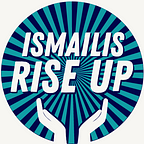We Need to Give People with Disabilities a Seat at the (Political) Table.
IRU Editor, Maheen-Naaz Ukani, on her experience living at the intersection of disability status, Ismailism, and American politics.
Through the power of storytelling, Maheen hopes to foster a collective sense of empathy––within and outside the Ismaili Muslim faith community in the United States––for the experiences of disabled persons trying to find their place in faith and in politics.
When I was 9 …
At age 9, I deeply struggled with my then-newfound reality of my physical disability. Truth be told, it is difficult to say whether my faith made it easier or more difficult to adjust initially. The comments I heard about myself from members of our faith community ranged anywhere from people inquiring, in front of me, whether I had done something in a past life to “deserve” becoming disabled to full-blown pity for my circumstances and for the body I was living in––the body Allah gave me.
It took time for me to find the overt, and even more subtle, ways in which Islam informed my sense of self as a person living with a permanent, physical disability. Overtime, I came to believe that there is in fact a certain beauty to being a disabled person growing up in the Ismaili community.
When I was 16…
Perhaps the most concrete way in which my worlds intersected in helping me define my sense of self, came from learning about the often-preached value and concept pluralism––the idea that our differences, including levels of ability, need not be viewed as burdens to be endure, but rather opportunities to deepen understanding and compassion across diverse groups.
Pluralism is why I’m comfortable and confident saying that my disability is not what isolates me from society; rather it is society’s ardent inaccessibility that shuts out people like me.
Today …
I often wonder, if society writ large took this pluralistic approach would the world look at the qualities that make us diverse as a chance to learn and be inclusive rather than being viewed as a weight to be carried? If it were the former, I cannot imagine the opportunities in mainstream society that would open up to me — that would allow me to feel included.
The way persons with disabilities are treated in mainstream society is ofcourse, reflected in our politics and political dialogue as well. In both spheres, the needs of the disability community and the policies that would ensure our inclusion remain an afterthought.
What I would like more people to realize is that our country’s disability policy is not a single political issue to be dealt with in a silo––it intersects with every other political issue.
Climate change is a disability rights issue. Economic inequality is a disability rights issue. Gun violence is a disability rights issue. Homelessness is a disability rights issue. This list goes on — longer than a CVS receipt.
Even police brutality. Reports show that half of the people killed by police are disabled. Sandra Bland, Eric Garner, Freddie Gray were all disabled. Yet, the word disability rarely comes up during the conversation on police brutality. Not including disabled people in reporting, stifling our voices and excluding us from policy making is what leads to crises like this.
MOVING FORWARD
No matter which issue you turn to, there is no doubt that disabled people deserve a seat at the table. When we are left out of the conversation, it inevitably leads to a community in pain, a community constantly in crisis, a community that is left to fend for itself with nobody around to hear the cries for help.
As Ismailis, it is crucial for us to remember how our faith is rooted in social justice.
Creating an equitable society is a tradition that started with the earliest founder of our faith.
We must continue the tradition in our everyday lives.
We must live our lives constantly practicing the ethics of our faith.
We must always remember to give every community a seat at the table, to amplify every voice fighting for liberty and justice.
And most importantly, we must encourage the communities we live in to have a pluralistic outlook and embrace diversity in every form.
